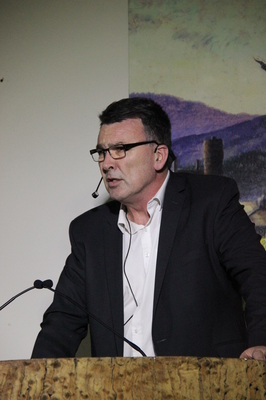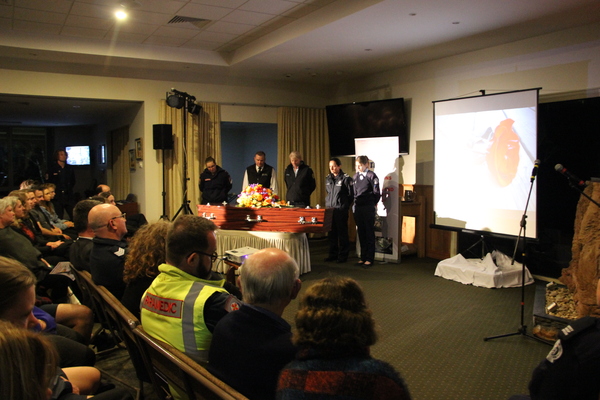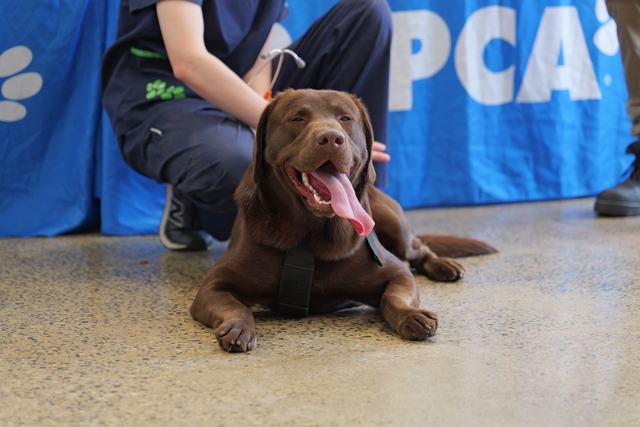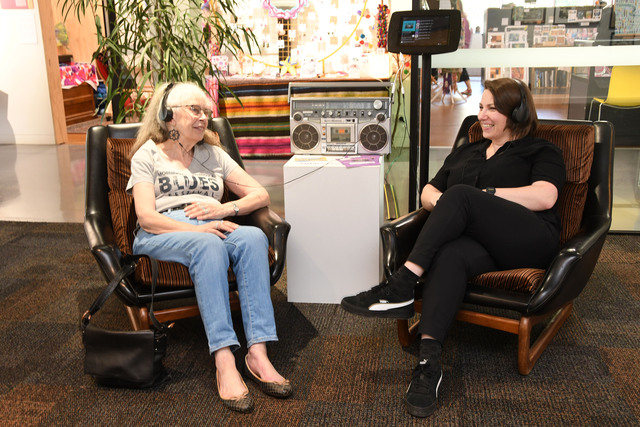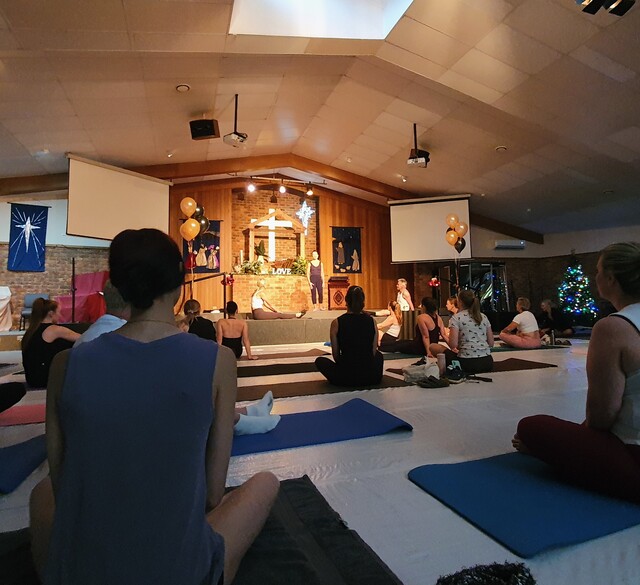“A driver’s licence is a privilege; it’s not a right”. That one sentence might have given the packed Heritage funeral home a hint of where Magistrate Tim Walsh was heading.
“You break the rules, you no longer have a licence.”
Mr Walsh was speaking to the 500 or so people at the 2018 Teenage Road Information Program (TRIP), most of them young people, and was the first magistrate to speak in the five years it’s been running.
With a target audience of 16 to 25 year-olds, and their parents, TRIP is a combined response by Yarra Valley emergency services – CFA, SES, Police and Ambulance to the tragic loss of young lives on Yarra Ranges’ roads.
Other speakers on 1 August were Paramedic Jason Callanan, Detective Sgt Mark Amos from the Major Collision Investigation Unit, Gruyere CFA volunteer and Group Officer Andrea Bigham, and Sally Millar, the mother of Charlie Robertson who died in a crash at Launching Place on 10 April, 2015.
Mr Walsh admitted he was surprised at the numbers saying he was asked by the court registrar to do a talk at a country town and was thinking perhaps 50 people.
“I think it’s a credit to the organisers , but more importantly I think it’s a credit to all the parents here and to all of you as a community that we have such a big turn out.”
He laid down the rules under the heading of a “few brief points about the attitude of myself and my colleagues”, and addressed some misconceptions about the leniency drivers might expect if they come before the courts.
“If you’re young, had a couple too many, you might think ‘I’ll lose my licence for six months if I get caught’
Myth dispelled. “No, no, no. What the law says is that I must take your licence off you for a minimum of six months,” he says.
“If you’re going too fast, doing burnouts or something we’ll start talking about 12, 18, 24 months.”
His attitude to pleas that loss of licence means loss of a job, is a blunt “tell someone who cares”.
He adds “And we’ll get to why very shortly.”
He had some statistics around the more serious consequences of motor vehicle crashes which are dealt with in the County Court.
In the last six years, for people aged 25 or less, he said there were 104 offences of culpable and dangerous driving causing death or serious injury, and dangerous or negligent driving while being pursued by police, resulting in 62 people sentenced to jail.
“You kill someone in a car crash, you’re drunk or speeding, you don’t get six months, you’re going to jail.”
He said as a barrister he had both prosecuted and defended in culpable driving cases.
“No one wins, everyone is a loser. They are the most tragic cases,” he says.
“Yes, he’s a good decent hard-working young fellow; he made this one mistake your honour … great family, great upbringing , plays local footy , he’s in the local youth group … that’s all well and good, but someone’s dead … sorry! You’re going to jail; that’s all there is to it.”
Having your vehicle impounded is another possible consequence under hoon legislation and, again, there are no apologies for following through with an order.
“When it gets forfeited, the Commissioner of Police decides whether to sell it or crush it. I think you’re welcome to come along and watch your car get crushed.”
The “why the tough attitude” came next in an audience participation exercise that had a touch of theatre about it, but shared a personal story of his younger days in a Gippsland town that informs the attitude.
“Are there two young blokes here who are brothers?” he asks.
“Stand up. You with the long hair can you stand up for me too because you remind me of someone I knew when I was a young bloke.
“Just the oldest brother stand up, the youngest one sit down.”
It’s a very personal approach, from the Magistrate’s point of view, and from that of the young people who take on the personas of people, some of them friends, he knew and who died in road crashes in the 80s.
It’s a powerful tool, naming each person and attributing their life to the person sitting next to you, or behind you, or in front of you.
Understandable, even 30 years later, he doesn’t want the names of all those people put in print.
But the characteristics of the people, and the circumstances of their deaths resonate in any community and certainly across Yarra Ranges.
“He’d been riding motor bikes since he was a kid – a good rider, going hard around a bend, lost it – bang, dead.”
“You there with the grey top. Stay standing up.” He’s a talented young local footballer; would’ve played AFL.
“I think he was 19; the best country footballer I’ve ever seen,” the Magistrate says. He was a passenger in a car that went into a tree. The driver went to jail for three years.
“You’ll do”, he says pointing out another young ‘bloke’.
He’s got a catchy nickname, just like so many of the young people who have died on our roads.
“He was at the hamburger shop. He was, as the old blokes say, full as a state school. He’d had too much to drink, jumped in his car, took off, came over the hill, hit a white post. Bang. He came through the windscreen. Dead.
“You stand up.” “You stand up.” You stand up.”
Someone with red hair. Someone in a hoody. A blondie. All up 18 people are named.
It’s brutally personal, and that’s just what road trauma is.
Each story is punctuated by a deep sigh.
Lastly, there’s one of his closest mates. It’s 1980, they were 19, played football together.
He’s got a name and a story too.
They had a few drinks together at the races and parted with ‘alright mate, see you at footy training Tuesday night‘. Tim (not yet a Magistrate) and some others got a taxi home.
“I walk in, my father’s white as a sheet. My father’s the local police inspector. Sit down I want to talk to you.”
“What’s wrong?”
And, as policemen do, he delivers the incomprehensible.
His best mate is dead. Driving from the races and crashed his car.
“My old man said ‘why did you let him drive?’.
“I said, ‘we left; I didn’t think he had his car there’.
“He said ‘did you ask him?’
“I’ve never forgiven myself for that.
“He was one of me best friends.”
Scanning the room he says “Yes I’m hard in court. There’s a reason I’m hard in court … there’s all these reasons I’m hard in court.”
And, an appeal.
“I hope this somehow gets the message across to you, because I’m sick and tired of taking people’s licences off them, taking their cars off them … and picking up the newspaper on Monday morning and here’s another young bloke, like you, dead as a door knocker.


